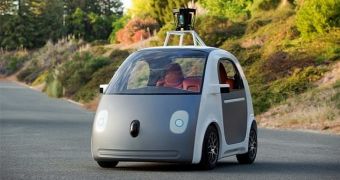Driverless cars are becoming a reality, with multiple teams working on various projects. These new technologies are going to revolutionize the way we travel, but in order for these cars to be allowed on the roads, legislation needs to be adjusted accordingly.
Over the past few weeks, reports have been coming in that the British lawmakers are already hard at work penning down the new amendments necessary to accommodate the cars that need no driver on the country’s streets.
Reports indicate, however, that things couldn’t be further from the truth. The reality is that the Department of Transport in the UK hasn’t begun any work of this type, but has been keeping a “watchful eye” on various driverless car trials, including Google’s. Before working on rewriting the Highway Code, however, they want to see the results of the tests to know what they’re dealing with.
David Willetts, minister for Universities and Science, has told the Daily Mail that the UK will be a world leader in the field of driverless cars, as the University of Oxford is working on a model too. And while the need for new regulations is being discussed, it is still too early to talk about legislation.
“What America is going to have is a legal regime in California that permits you to travel in one without requiring someone in the so-called driver’s seat,” Willetts said, referring to the rules currently in force in the United States.
Of course, there’s a downside even to these rules because Google’s new prototype has absolutely no wheel, pedals or anything else to permit user control aside from an on/off button. This means that making someone, even if there’s a single person on board, stay in the driver’s seat is useless since, in case something goes wrong, there’s nothing he or she can do.
The Internet giant has been working on this project for many years and has recently used modified Prius and Lexus versions to test out the operating system and to improve it. But the company has figured that it would be best if it built its own prototype and cut down on everything that wasn’t necessary for its project, which includes the steering wheel, pedals, and mirrors.
The company has been refining its system, making it possible for the cars to detect everything happening around them, to respect traffic laws and to navigate the roads with precision.

 14 DAY TRIAL //
14 DAY TRIAL //